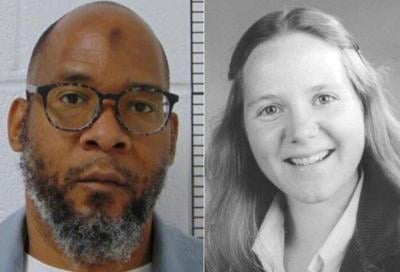After 26 years of competing court filings, secret commissions, TV news alerts and front-page headlines, my husbandâs personal pain is, once again, the subject of public discussion and debate.
My husband was married to Lisha Gayle, who was murdered in their University City home in 1998. Marcellus Williams, the perpetrator of this brutal and unconscionable crime, was tried, convicted and sentenced to death in 2001.
But this is not where my husbandâs nightmare ends; it is where it begins.
This is now the fifth time this family tragedy has been revisited, relitigated and reappeared in the press. We are exhausted and exasperated.
On Jan. 26, the St. Louis County Prosecutorâs office filed a motion to vacate Mr. Williamsâs conviction for first degree murder and his subsequent death sentence in the Circuit Court for St. Louis County. Now we have yet another prosecutor, yet another judge, forcing the family to relive the worst days of their lives and denying them the closure they deserve.
People are also reading…
A well-to-do white woman stabbed to death in her upscale home by a Black male perpetrator made Lishaâs murder a headline-grabbing case from the beginning, with racial, cultural and social class components.
Over the years, though, this case has become a national and international news story, a foil for longstanding grievances, a platform for pundits and a cause celeb for advocates and activists. All of these ubiquitous but false statements only ignite partisan passions and cause endless anguish for my husband and Lishaâs family.
The recent Jefferson City press conference of exonerated former inmates proclaiming Williamsâs innocence was a made-for-television moment â but deeply and completely wrong.
In a recent op-ed in the Post-Dispatch (âI lived Marcellus Williamsâ story. Missouri must not let it end with his execution.â July 30), Kirk Bloodsworth, one of the exonerees, asserted that Williamsâ case âhas many similarities to mine.â
No, Mr. Bloodsworth, there are no similarities between your case and this one. You were an honorably discharged Marine. Marcellus Williams was a criminal, with more than 16 convictions, including burglary, assault, armed criminal action and unlawful use of a weapon at the time of Lishaâs murder.
Bloodsworth, like others, claims that two âunreliableâ witnesses were âincentivized by the prospect of reward money.â This is false. One was Williamsâs girlfriend, who was never offered money in exchange for her testimony. She voluntarily testified anyway, and only after the trial was the decision made to split the reward money between the two witnesses.
Bloodsworth further states that âDNA testing exonerates him.â It does not. In fact, the DNA testing was inconclusive and Williamsâ own expert witness testified that Williams could not be excluded from matching the DNA found on the knife.
In addition, testimony at trial revealed that Williams wore gloves during the commission of the crime and, in an affidavit filed with the court, Keith Larner, the original prosecutor on the case, states that âthe knife handle was not handled in a way that would preserve it for DNA testing.â He said that âpolice witnessesâ as well as defense attorneys and jurors, who were given access to the knife during deliberations, were able to touch it. It was also a kitchen knife from Gayleâs home, which had been handled by numerous family members and guests.
We are happy that DNA evidence overturned Bloodsworthâs conviction, but the DNA in this case does not prove that Williams is innocent. In fact, he was in possession of Lishaâs laptop computer, her purse, her state-issued i.d., a ÁńÁ«ÊÓÆ” ruler (she was a reporter there) and a calculator â all taken from her home.
Whether the death penalty is deserved in a case like this is a matter for debate. Williamsâs guilt is not.
We request that Mr. Bloodsworth and everyone else who feels compelled to offer uninformed opinions and baseless assertions read the hundreds of pages of testimony, affidavits, motions, petitions, summaries, writs and requests filed in this case. It is not simple and straightforward and does not lend itself to sound bites and talking points.
In 2001, lawyers for both sides presented evidence, argued with passion and concluded their cases with confidence. A verdict was reached at trial. It does not need to be retried in the court of public opinion.
Furthermore, adding to the clamor and the unwanted public scrutiny already surrounding this case, the opposing attorneys are seeking elective office. No victims deserve to have their pain made part of a political campaign.
Seven years ago, amid another media frenzy around this case, I wrote an op-ed for this paper detailing our familyâs tragedy. (âChaos, not closure, for family of murder victim,â Aug. 31, 2017)
Yet again, I am asking all those who cling to unsupported claims of innocence, media outlets unable to resist sensational stories, pretend scientists speculating on DNA evidence and misinformed pundits to recognize that for the families of victims, to consider that this is not about their beliefs, viewpoints, supposition or speculation.
For us, it is deeply and painfully personal. As I said then, this is not closure; this is chaos. Now, more than a quarter of a century later, the chaos has been compounded and a grieving family still waits.









